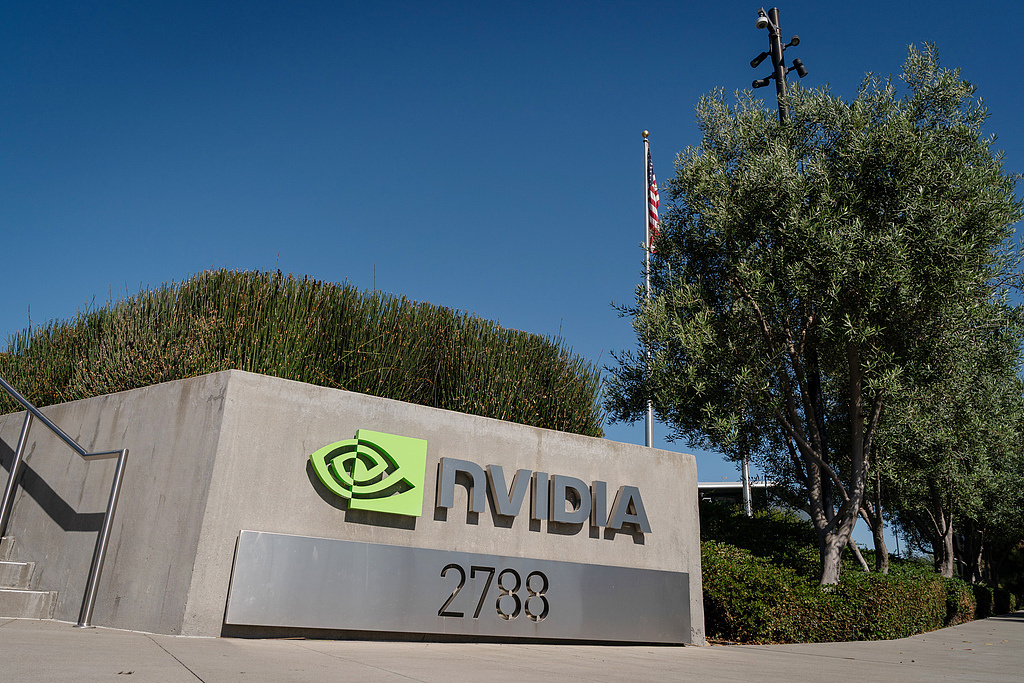Nvidia, the giant maker of artificial intelligence chips, was again embroiled in a legal row yesterday after a Chinese antitrust investigation was launched. The Supreme Court allowed investors to file a class-action lawsuit against chip maker Nvidia and rejected Nvidia’s appeal, according to Reuters. It is the latest legal dispute to engulf Nvidia since the French, European Union and Chinese launched “Antitrust investigations” into Nvidia.

Nvidia headquarters, Santa Clara, California, USA.
“Intentionally misleading statements.”
The Supreme Court has ruled against Nvidia in an important ruling, Reuters reported Tuesday. The decision means the company will not be able to avoid securities fraud lawsuits brought by shareholders who have accused Nvidia of misleading investors and overstating the extent to which its sales are dependent on the volatile cryptocurrency markets.
After several trials, the Supreme Court heard arguments on 13 November and chose not to rule directly on the legal dispute in question, but to uphold the lower court’s decision, allowing class-action lawsuits filed in 2018 to continue.
The plaintiffs allege that statements made by Nvidia and its chief executive, Jen-hsun Huang, in 2017 and 2018 violated the Securities and Exchange Act of 1934, the claims falsely understate the share of encryption-related purchases in Nvidia’s revenue growth. As cryptocurrency prices rose in 2017, Nvidia’s chips became hot in the field of cryptographic mining. By the end of 2018, however, Nvidia’s earnings missed expectations as cryptocurrency profitability declined, leading to a sharp fall in its share price.
The lawsuit seeks unspecified monetary compensation for the loss of value suffered by investors in Nvidia’s shares. Notably, in 2022 Nvidia agreed to pay $5.5 m to US authorities to settle allegations that it had failed to properly disclose the impact of crypto-mining on its gaming business, but the company did not acknowledge or deny the findings of federal regulators at the time.
After a series of legal proceedings, the ninth US Circuit Court of Appeals in San Francisco reinstated the shareholder suit, finding that the plaintiffs had sufficiently charged Jen-Hsun Huang with “Wilfully or recklessly making false or misleading statements”. Nvidia complained and appealed to the Supreme Court. But the Supreme Court did not uphold his appeal.
Why was Nvidia targeted?
Before that, on December 9, China’s anti-monopoly agency, the State Administration of Market Supervision and administration of China, issued an announcement, announcing that Nvidia has been found guilty of violating the anti-monopoly law and the “Notice of the anti-monopoly review decision of the State Administration of market supervision on granting restrictive conditions to Nvidia’s acquisition of shares in Merox Technologies”(hereinafter referred to as the “Notice”) , nvidia company in accordance with the law to open an investigation.
In March 2019, according to the proclamation, Nvidia acquired a full stake in Melos, an Israeli network equipment company. In April of that year, the regulator received an antitrust filing. In February 2020, after conducting a case-filing review, the state administration of market supervision concluded that, this concentration has or may have the effect of excluding or limiting competition in the global and Chinese markets for GPU accelerators, dedicated network interconnection devices, and high-speed Ethernet adapters, this led to the decision to grant conditional approvals, requiring entities such as Nvidia to meet their obligations. Nvidia GPU accelerator, Merox high-speed network interconnection equipment and related software and accessories will be supplied to the Chinese market according to the principles of fairness, reasonableness and non-discrimination.
Since 2020, however, Nvidia has cut off high-end gpus from the Chinese market and sold “Neutered” versions to China, citing the US government’s expanding export controls on semiconductors. Shares in Nvidia fell 2.5 per cent and 1.47 per cent on December 9 and 10 respectively after the announcement, reducing its market capitalisation by nearly $100bn.
Experts said Nvidia could face fines of up to $1bn, equivalent to 10 per cent of its Chinese sales in fiscal 2024, according to the Hong kong-based South China Morning Post. Industry insiders believe Nvidia could be forced to choose between the twin demands of export control compliance and competition compliance, as well as heavy fines.
The world faces regulation
Since the 2024, Nvidia has faced antitrust regulatory challenges in the US and Europe. Last month, Nvidia admitted he had received contacts from regulators around the world, including the US, UK, EU and South Korea, the BBC reported.
In early August, Xinhua, citing US magazine information, reported that the Justice Department had launched an anti-trust investigation into Nvidia, the Justice Department is investigating whether Nvidia forced cloud-computing providers to buy several Nvidia products after a rival company complained that it may have abused its dominant market position in selling AI chips. In addition to the bundling, the DOJ is also investigating Nvidia’s investment acquisitions, including Nvidia’s $700M takeover of artificial intelligence start-up Run: AI in April.
In July, the French antitrust agency announced it was investigating Nvidia. Regulators in the country have cited concerns about the industry’s reliance on NVIDIA’s CUDA platform to write AI software, in a report into the competition for Generative AI. The European Commission recently sent out a questionnaire asking Nvidia if there were any commercial or technical bundling of GPU products, Reuters reported, citing sources.
Xiang ligang, chairman of the Zhongguancun Information Consumer Alliance, told the Global Times on the 12th that the investigation into Nvidia had a big impact on Nvidia’s share price, nvidia’s future performance will be tested. By 2025, with the completion of China’s computer centre and the cooling of AI fever in the market, Nvidia’s plans to sell chips at high prices will be affected, and its revenues and profits will suffer. High-growth results and share prices will be hard to sustain, and“Monopolies will be challenged”.